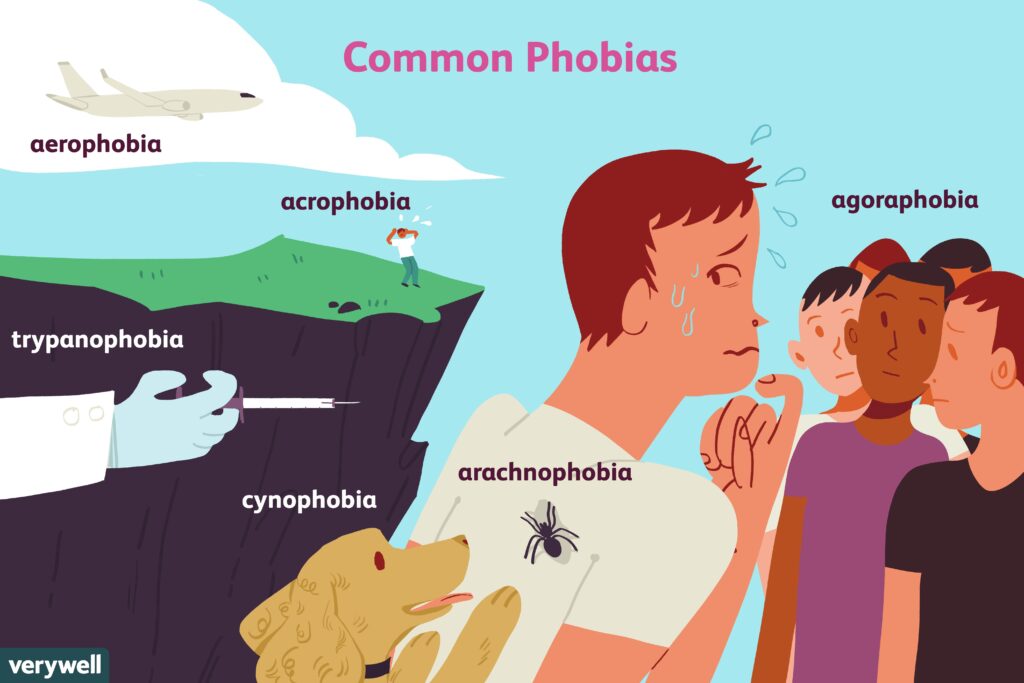
Phobias are a complex anxiety disorder that deeply affects a person’s life. They are intense fears of specific things, like objects or situations. These fears are often too big for the real danger.
What Are Phobias?
A phobia is an overwhelming fear of something that’s not really dangerous. It can be triggered by many things, like heights or public speaking. The exact reasons for phobias are still being studied, but it’s thought to be a mix of genetics, environment, and psychology.
Common Types of Phobias

There are many kinds of phobias. Here are a few:
- Agoraphobia: Fear of being in places where it’s hard to get out, like crowded areas or buses.
- Social Phobia: Fear of being in social situations, often because of fear of being judged or embarrassed.
- Specific Phobias: Fears of specific things, like heights (acrophobia), spiders (arachnophobia), or public speaking (glossophobia).
Phobias can really limit a person’s life. They often lead to avoiding certain situations and can affect work and social life. Learning about them is the first step to finding ways to deal with them.
Recognising the Signs and Symptoms
Spotting the signs and symptoms of a phobia is key to managing your fears. Phobias show up in many ways. You might feel your heart racing, sweat a lot, or shake. You might also feel intense anxiety, panic, or want to avoid certain things.
Knowing these signs helps you start to overcome your phobias. It’s the first step towards facing your fears.
Physical Symptoms
When you face something that triggers your phobia, your body might react. You might notice:
- Accelerated heart rate
- Excessive sweating
- Trembling or shaking
- Shortness of breath
- Nausea or dizziness
Psychological Reactions
They also cause psychological reactions that can affect your life. These might include:
- Intense anxiety or fear that’s out of proportion to the danger
- Feeling panic or dread when you’re near the phobia trigger
- A strong urge to avoid the thing, situation, or activity that scares you
By spotting these symptoms, you can start to understand and tackle your fears. Remember, facing your phobia begins with acknowledging its signs and symptoms.
Effective Treatment for Phobias
Phobias are treatable, and you can manage your fears. Understanding phobias and recognising signs is the first step. This leads to effective phobia treatment and coping strategies such as:
- Cognitive-Behavioral Therapy (CBT): Focuses on changing the thought patterns that trigger fear.
- Exposure Therapy: Gradually confronts the feared object or situation in a controlled manner.
- Medication: Antidepressants, beta-blockers, and benzodiazepines help reduce anxiety symptoms.
- Mindfulness and Relaxation: Techniques like deep breathing and meditation calm the mind during fear responses.
You’re not alone in facing your fears. Mental health professionals can guide you. They help you overcome your phobias and live a fulfilling life.
Remember to subscribe to our newsletter for regular health updates from us!









